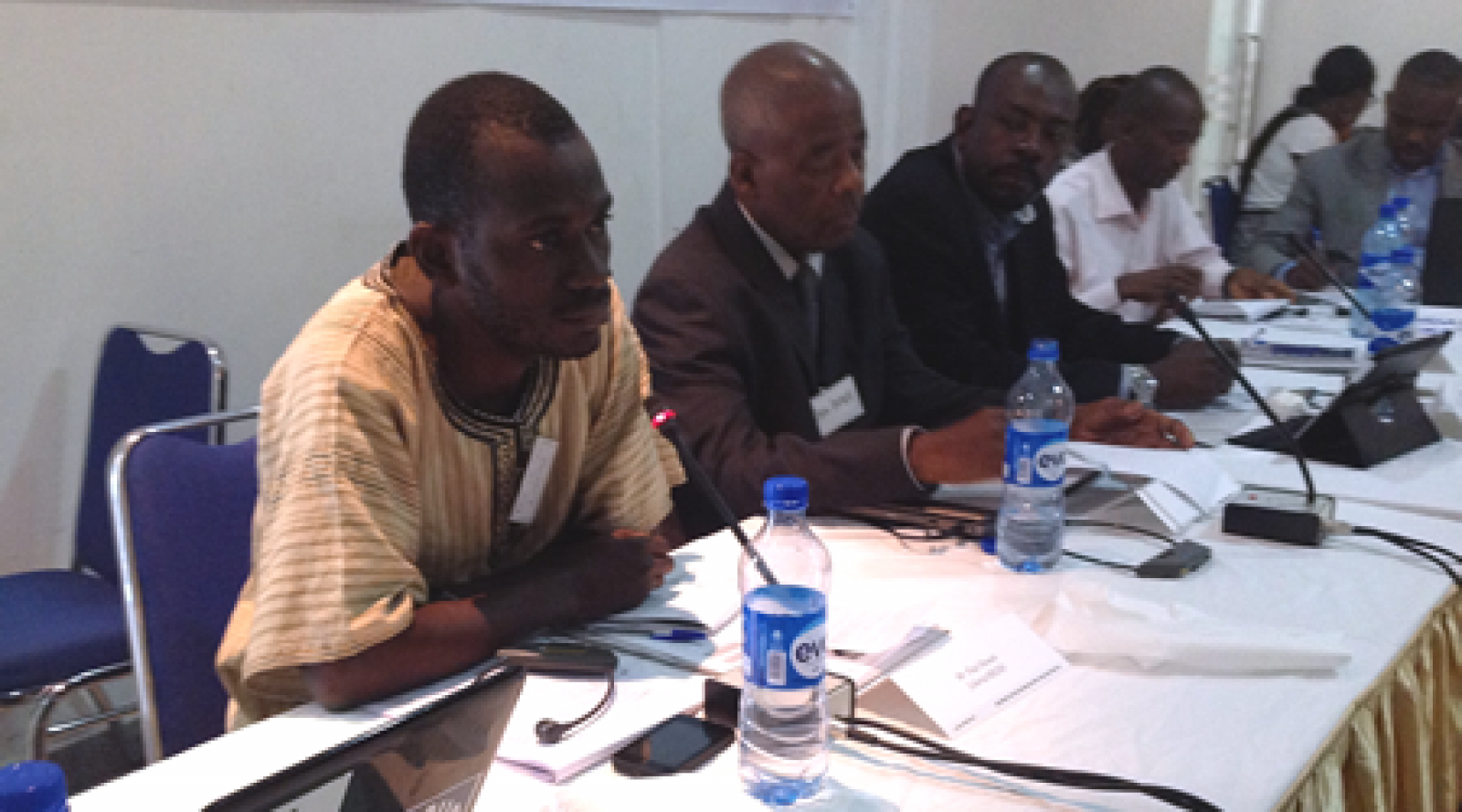
SHARE
Some 39 countries have signed the African Charter on Democracy, Elections and Governance (ACDEG), created by the African Union (AU) in 2007 as a roadmap to encourage better governance across the continent. It sets out international standards of good governance and democracy in such areas as rule of law, free and fair elections, and condemning unconstitutional changes of government.
Some countries are using the charter as a guide during difficult transitions. Mauritania, for example, relied on its principles to negotiate a return to constitutional order after a 2008 coup. But other countries have had difficulty following it. West Africa, which represents more than half of the 20 countries whose legislatures have formally adopted — or ratified — the charter, has been the venue for 10 out of the 14 attempts to disrupt constitutional and democratic governments, such as in Mali and Guinea Bissau, since the charter was created.
Two recent studies found that the charter has gotten little attention or recognition from governments and civil society in West Africa since it came into force in February 2012. There is an absence of political will to implement and enforce it, and few citizens are aware of it, the studies concluded.
The research, which looked separately at Anglophone and Francophone West African countries, was conducted by the West Africa Election Observers Network (WAEON), a coalition of nonpartisan citizen observations groups from 11 countries, and NDI. The studies’ goal was to determine if there was a way to make the charter more effective in West Africa.
Members of WAEON — including groups from Burkina Faso, Cote d’Ivoire, Ghana, Guinea, Liberia, Mali, Nigeria, Niger, Senegal, Sierra Leone and Togo — met in Abuja, Nigeria, May 5-8 to discuss the studies’ findings, reflect on each country’s progress, and draw up national and regional strategies to promote the charter. Though there is no formal enforcement procedure, participants in the symposium hoped that educating citizens about the charter and the rights that it protects would encourage them to pressure their governments to adhere to it, and motivate civil society organizations to monitor and publicly report on governments that are not following it.
About the Charter:
The African Charter on Democracy, Elections and Governance (ACDEG) was adopted by the African Union (AU) in January 2007 in Addis Ababa, Ethiopia. Because it required a minimum of 15 countries to ratify it to become operational, it did not come into force until February 2012.
Countries that ratify the charter agree to:
- Have representative systems of government with separation of powers between branches
- Promote democracy, rule of law and basic human rights
- Ensure democratic rule and constitutional changes of power through free, fair and transparent elections
- Respect ethnic, cultural and religious diversity
The charter authorizes sanctions by ECOWAS for countries that fail to meet those requirements for democratic government. The sanctions include refusal to support candidates for positions within ECOWAS or suspension of the country from the group’s decision-making bodies.
Countries that have ratified the charter are Benin, Burkina Faso, Cameroon, Chad, Ethiopia, Ghana, Guinea, Guinea-Bissau, Lesotho, Malawi, Mali, Mauritania, Niger, Nigeria, Rwanda, Sierra Leone, South Africa, Sudan, Togo and Zambia.
During the symposium, hosted by the Transition Monitoring Group (TMG), a Nigerian election monitoring organization, participants outlined goals for how WAEON can, over the next year, encourage West African countries to use the charter’s guidelines to strengthen democracy in the region. One goal was to educate WAEON members on how other countries are promoting the charter to citizens and lawmakers. In Kenya, for example, one civic group distributed simplified versions of the charter to help the public understand its basic requirements.
Participants discussed holding exchanges among WAEON countries so visitors could learn how others were using the charter. The constitutions and political institutions in Ghana and Sierra Leone, for example, reflect most of the charter’s principles, such as democratic governance, respect for human rights and free elections.
WAEON organizations also agreed to make efforts to promote the charter — one of the key pillars of which is free and fair elections — before, during and after elections.
“Even after a good election, we cannot take democracy for granted and that is the principal lesson that we draw from Mali and Guinea Bissau and some other countries that may be facing challenges,” said Christopher Fomunyoh, NDI regional director for Central and West Africa, while in Abuja for the event.
WAEON participants also agreed to create more awareness about the charter with such groups as the Economic Community of West African States (ECOWAS), the UN and parliamentary committees across the region. On the last day of the symposium, a WAEON delegation visited the ECOWAS Parliament, located in Abuja, and met with the Election Division and the parliament leadership to encourage creation of a regional monitoring system for the charter. The WAEON delegation included James Lahai, WAEON’s Anglophone researcher; Oumar Diallo, WAEON’s Francophone researcher; Hajia Limota Goroso of TMG; Fomunyoh; and Franklin Oduro from the Center for Democratic Development (CDD) in Ghana, who represented the WAEON Secretariat.
At the end of the symposium, WAEON issued a press release calling “on all governments in West Africa to demonstrate greater commitment towards consolidating democracy in their countries by implementing fully the tenets of the” charter.
Read more:
- WAEON Field Guide Series
- WAEON Academy Addresses Role of Security Sector in Ensuring Peaceful and Credible Elections
- West Africa Election Observers Join Together to Promote Credible Elections
Published June 28, 2013


